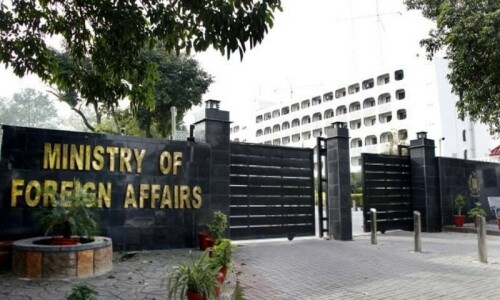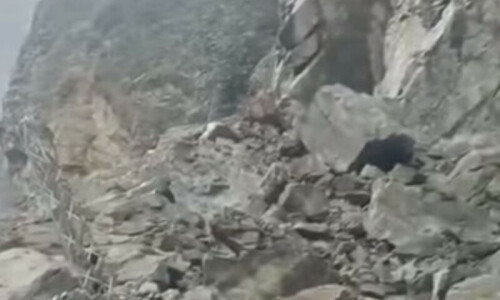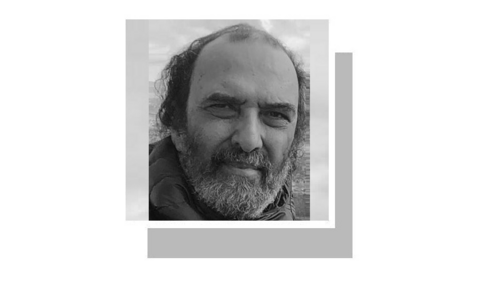It seems quite fruitless to discuss art in these dark and difficult days for the nation when art feels pointless and dispensable. However, it would be even more of a tragedy if artists stopped doing what they do.
Art rises above brutality and in a place like Pakistan, it is not only important, but also crucial for art to be discussed and artists to have their expressions heard over and beyond the loud and destructive voices, that are bent at annihilating anything that is flourishing in the country.
Artists are sensitive to their surroundings and pose questions and address debates through their works. They can be visionaries that lead us to new ways of thinking. Indeed, the country has a strong history of artists that have given us multifaceted views. Their art needs to be analysed in ways that can somehow frame the past for us to be able to make sense of the present.
On the 20th anniversary of her death, the Unicorn Gallery, Karachi, provided such a platform by organising a retrospective of the work of Laila Shahzada. She is part of the generation of well-known artists in Pakistan — including Gulgee — who were active in the ’60s, ’70s, and later made abstract and semi-abstract paintings in styles familiar in Europe and the United States.
Laila Shahzada’s style is surreal in which subconscious imagery rises to the surface
Although the exhibition lacks a critical text that can help situate the artist’s work, it nonetheless provides a unique opportunity to view paintings that are otherwise found in multiple private and public collections. Bringing them together, one can attempt to understand a lifetime of work at the exhibition which opens up an insight into the breadth of her art.
 |
| Buddha. — Photos by Fahim Siddiqi / White Star |
Her semi-abstract paintings that magnify the artist’s inner thoughts are familiar to many audiences in Pakistan and abroad. These works sometimes reveal the body, but never in a direct way. The human physique transforms before the viewer’s eyes. The layering of paint suggests flesh. A mountainous landscape becomes a body. Her style is surreal in which subconscious imagery rises to the surface. These kind of pictures reveal the influence of European painters like Salvador Dali who created dreamlike landscapes in which one image shifts into another.
In many of Shahzada’s paintings, there is the presence of an inner glow that shines beyond the exterior boundaries of bodies, landscapes, and objects. It is as if the inner core of these forms is trying to burst free as the artist lays them on to the canvas. The lustrous quality of her paintings shares a sensibility with the work of American artist Georgia O’Keefe who expressed her inner self through paintings of flowers and other natural forms. O’Keefe’s work had a similar radiance as Shahzada’s inner landscapes.
This looking-glass view into the artist’s mind and life might not offer us a clear understanding of what was going on in her thoughts but it does provide audiences with space to create their own stories and interpretations. And, this is the freedom that artists offer to the world when they make subtle and nuanced art that permits viewers to develop an understanding and relate what they see to their own experiences. It is a room for dialogue and debate that is so critical to a life of analysis and thoughts — in other words, to a life worth living.
Published in Dawn, Sunday Magazine, December 28th, 2014














































